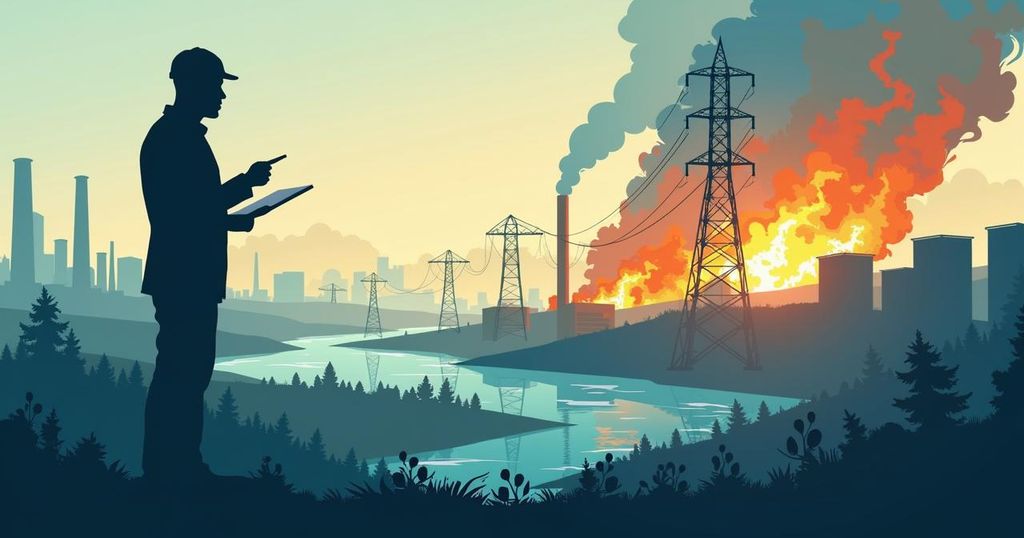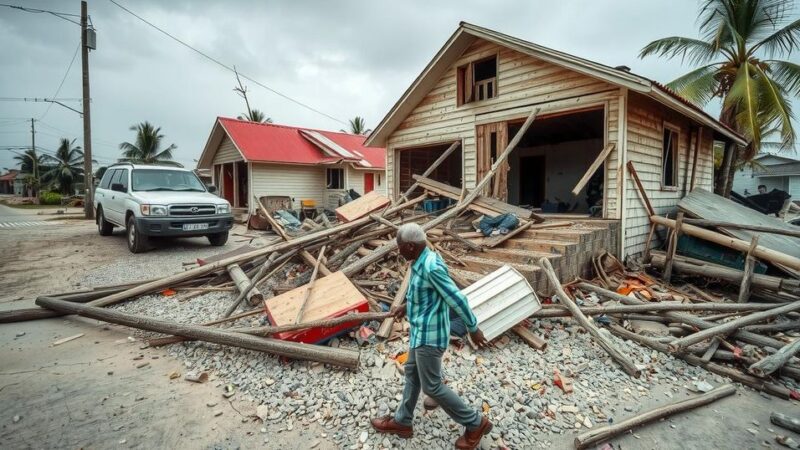Hurricane Helene highlights the urgent connection between climate change, aging infrastructure, and human development in flood-prone areas. Expert Manoochehr Shirzaei underscores the need for improved preparedness and adaptive strategies to address intensifying weather events and the risks posed by legacy infrastructure systems.
Following the devastating impact of Hurricane Helene, significant insights have emerged regarding the interplay of climate change, outdated infrastructure, and human activities in exacerbating such disasters. Manoochehr Shirzaei, an associate professor of geophysics at Virginia Tech, highlights critical lessons for enhancing community preparedness and resilience in the wake of such catastrophic events. As Shirzaei articulates, “The tragic flood event in the southeast U.S. is a poignant example of the confluence of multiple factors, including development in floodplains, inadequate infrastructure maintenance and management, and the specter of climate change, whose compounding effect can amplify the disaster.” Shirzaei elaborates on the implications of a warming planet, stating that the southeastern United States is increasingly susceptible to erratic and severe weather phenomena as the changing climate unfolds. He explains, “The anomalously high precipitation linked to Hurricane Helene can be partially attributed to a warming atmosphere, which has an enhanced ability to retain moisture.” The expert draws attention to the growing frequency and intensity of extreme weather events, asserting, “Both observational data and climate models suggest that the frequency and intensity of extreme precipitation events have been increasing and are projected to continue rising.” This calls for urgent adaptive strategies to tackle the impacts of escalating weather extremities, reflecting the overarching global dilemma posed by climate change. In addition to these environmental factors, Shirzaei points to the significant vulnerabilities introduced by aging infrastructure. He emphasizes that “Legacy systems, including levees, dams, bridges, roads, and electrical grids, were not originally designed to endure the growing severity of hurricanes exacerbated by climate change.” As infrastructure deteriorates, the risk of catastrophic failures during extreme weather events only escalates. The article also mentions the trajectory of Hurricane Helene, which made landfall in Florida and subsequently impacted multiple states, including Georgia, the Carolinas, Tennessee, and Virginia, resulting in loss of life and extensive damage. Shirzaei cautions against the persistence of human settlements in flood-prone regions, which significantly increases disaster risks. He notes, “Over the past few decades, the expansion of human populations into flood-prone areas has accelerated worldwide.” This trend is particularly alarming, as many vulnerable communities are situated downstream of dams or in river valleys where they are most susceptible to hazardous flooding.
The article discusses the multifaceted nature of disasters such as Hurricane Helene and the overarching challenges posed by climate change and societal behavior. It underscores the significance of understanding how demographic shifts into vulnerable geographic areas, inadequate infrastructure, and climatic influences converge, leading to devastating outcomes. The insights provided by Professor Shirzaei serve to inform strategies aimed at improving community resilience and preparedness for future disasters.
In conclusion, the discussion surrounding Hurricane Helene elucidates the pressing need to address the intertwined issues of climate change, insufficiently maintained infrastructure, and human settlement patterns in flood zones. The expert recommendations highlight the necessity for adaptive strategies to mitigate the impacts of future extreme weather events. By acknowledging and learning from disasters such as Hurricane Helene, communities can enhance their resilience and preparedness for the challenges ahead.
Original Source: phys.org







